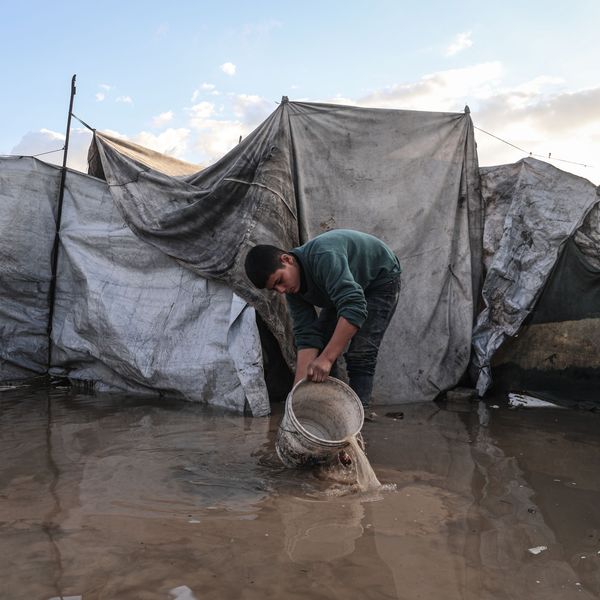At least 800 people in Haiti were killed by Hurricane Matthew, according to new figures released Friday as remote regions cut off by the storm were able to resume outside contact.
As humanitarian groups struggled to reach the hardest-hit areas, residents took stock of the damage left by the most powerful cyclone to hit the Caribbean nation in decades. Aid workers estimated that at least a million people were affected in the southern part of the country, where most deaths occurred. The city of Jeremie saw 80 percent of its buildings destroyed.
Pilus Enor, mayor of the southern town Camp Perrin, told the Associated Press, "Devastation is everywhere. Every house has lost its roof. All the plantations have been destroyed...This is the first time we see something like this."
Annick Joseph, Haiti's internal minister, cautioned during a press conference, "This is a very, very partial assessment of the damage and death," noting that yet more bodies were being discovered in remote mountain regions.
The storm sent 145-miles-per-hour winds through the nation's villages, ripping roofs off of houses and whipping up floods and mudslides. In addition to the immediate damage, the hurricane is expected to exacerbate existing, long-standing problems in Haiti, from a pending outbreak of cholera--introduced to the country by United Nations peacekeepers in 2010--to the widespread destruction of infrastructure.
As the New York Times elaborates:
This latest disaster revives unresolved questions that continue to haunt the country from the 2010 earthquake, when international aid groups practically usurped the role of the government.
The government has been clear that this time around it will take the lead on coordinating aid, as donors bring in fresh water, food and money. Yet that approach, too, has its limitations.
The current government is an interim administration that was to be replaced in the Sunday election. There is no word on when that vote will be rescheduled.
For international aid organizations, striking a balance between working with the government and delivering lifesaving assistance expeditiously will define the coming months of the crisis, many say.
In a column for the Guardian, Jocelyn McCalla, executive director of the National Coalition for Haitian Rights (NCHR), further explains aid groups' predatory legacy in Haiti--and how the hurricane could present new opportunities for them to take advantage of a country in need--writing, "Westerners looking on the island with concern should know: what we need most for long-term growth is investment, not charity."
McCalla continues:
[T]he Haiti Reconstruction Fund--a fund established in 2010 and managed by theWorld Bank on behalf of various donor countries--disbursed this year through 30 June just $16.7m out of a total of $351m for disaster relief purposes. One of the reasons why only a tiny fraction of that money has been used is that most of the money is meant to be used for earthquake reconstruction.
Relief aid should be empowering. It should be delivered quickly to meet urgent needs, not be used as a permanent channel for relieving normal stress and pain associated with development woes. In times of tragedy, it is important to distinguish between the do-gooders and the predators. It is quite easy for predators to have the upper hand when they can cast themselves as valuable intermediaries.
In lieu of sending money to organizations with a dubious history in Haiti, those wanting to contribute to relief efforts were encouraged to support Haitian-led grassroots organizations like Konbit Sole Leve and Sakala, which have been providing emergency assistance and shelter.
In addition to the death toll, officials estimate that anywhere from 15,000 to 27,000 people have been displaced, with hundreds injured and at least 20,000 homes destroyed. And aid workers expressed concern that the devastation to farmland could destabilize the country's food security.
Hervil Cherubin, Haiti director for the nonprofit Heifer International, told the Times, "We're very worried about the country's future in terms of food security. Most of the crops are gone. Many of the farm fields are like landfills. They're full of trash, seawater, gravel and other debris."


